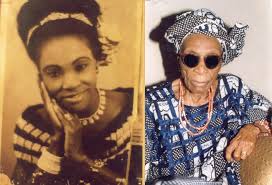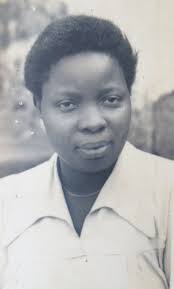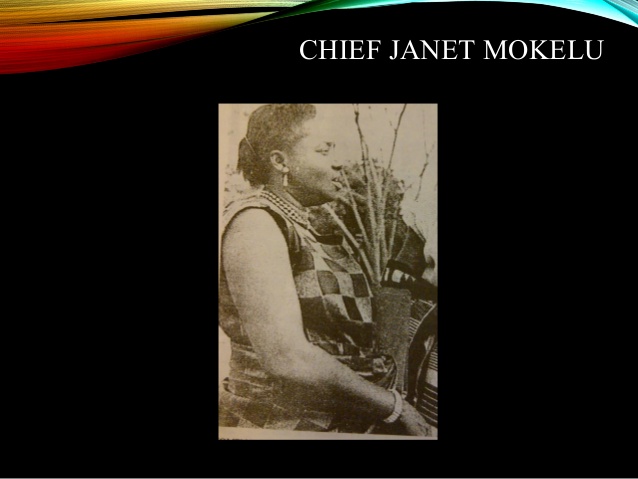Happy International women’s day! This year’s theme is #ChooseToChallenge. Today’s blog post would be about Nigerian women taking charge and attempting to control their own destinies and their own life. I am going to do my best to spotlight women that I personally believe are phenomenal and I believe deserve more attention.
THE WOMEN
1 Margret Ekpo
2 Elizabeth Adekogbe.
3 Janet Nwadiogo Mokelu.
MARGRET EKPO
Born July 27, 1914, to the family of Okoroafor Obiasulor and Inyang Eyo Aniemewue. She married a doctor, John Udo Ekpo in 1938. Her first direct participation in political ideas and association was in 1945. Her husband was indignant with the colonial administrators’ treatment of indigenous Nigerian doctors but as a civil servant, he could not attend meetings to discuss the matter.
Margaret Ekpo then attended meetings in place of her husband. The meetings were organized to discuss the discriminatory practices of the colonial administration in the city. Also to fight cultural and racial imbalance in administrative promotions. By the end of the decade, she had organized a Market Women Association in Aba to unionize market women in the city. She used the association to promote women’s solidarity as a platform to fight for the economic rights of women, economic protections, and expansionary political rights of women.
Margaret Ekpo’s awareness of growing movements for civil rights for women around the world prodded her into demanding the same for the women in her country. To also fight the discriminatory and oppressive political and civil role colonialism played in the subjugation of women. She felt that women abroad including those in Britain were already fighting for civil rights. They also had more voice in political and civil matters than their counterparts in Nigeria.
In the 1950s, she also teamed up with Funmilayo Ransome-Kuti to protest killings at an Enugu coal mine; and in 1954 she established the Aba Township Women’s Association. As the leader of the new market group, she was able to garner the trust of a large number of women in the township and turn it into a political pressure group. By 1955, women in Aba had outnumbered men, voters, in a citywide election.
Margaret Ekpo won a seat in the Eastern Regional House of Assembly in 1961, a position that allowed her to fight for issues affecting women at the time. In particular, there were issues on the progress of women in economic and political matters, especially in the areas of transportation around major roads leading to markets and rural transportation in general. She died in 2006.

To read more about Margret Ekpo, click the link.
https://www.aljazeera.com/features/2020/12/12/remembering-margaret-ekpo-and-enugu-strike-massacre
ELIZABETH ADEKOGBE
Adekogbe was born to a family from Ijebu-Ife in 1919. She studied at St Agnes Catholic Training School and Yaba College of Technology. Margret soon joined the civil service and rose to become an Assistant Inspector of Prices during World War 2. Also, she was a Nigerian nationalist, politician, women’s rights leader, and traditional aristocrat.
Ekpo was the leader of the Ibadan-based Women’s Movement of Nigeria. In 1954, the movement changed its name to the Nigerian Council of Women, which in 1959 merged with the Women’s Improvement League to form the National Council of Women Societies, a dominant pressure group and a leading women’s coalition in Nigeria. She died in 1968.
What was the Women’s Movement of Nigeria?
The Women’s Movement was formed in Ibadan in 1952. The group’s objectives were universal suffrage, admission of women to Native Authority councils, the nomination of members to the Western House of Assembly, enrollment of more girls in secondary schools, a reduction in the bride price, and controls over Syrian and Lebanese trading monopolies.
The organization was sometimes aligned with the Action Group. However, few or zero politicians and parties put forth women candidates in federal elections during the period, though women played a major role in electioneering at the time. The women groups were more likely used for gaining votes.
In 1953, a women’s conference was convened in Abeokuta. The conference contained all the major women’s organizations in the country. A leader of the assembly, Funmilayo Ransome-Kuti, who was favorably disposed towards the National Council of Nigeria and the Cameroons (NCNC), named the congregation: the Federation of Nigerian Women’s Society.
However, there was a battle of wills among the two prominent women at the assembly: Adekogbe and Kuti. Adekogbe lost and left the assembly. Later, she supported an alliance with the women’s league of the Action Group.

To read more about Elizabeth Adekogbe, click on the link.
https://prettyfamouspeople.com/biography/Elizabeth_Adekogbe
JANET NWADIOGO MOKELU
Born to the Joseph and Magaret Onwuegbuzia of Umuagu quarters, Asaba now in Delta State, Nigeria, on February 7, 1910. She was a Nigerian politician, philanthropist, nurse, teacher, headmistress, and businesswoman.
She was able to distinguish herself as an educationist, a committed activist, and also a nationalist. A one-time member of the Eastern House of Assembly in Nigeria.One of the first Nigerian female lawmakers.
Janet has made various contributions towards the uplifting of women through her political activities. In fact, she also believed in equity and pioneered several pieces of legislation such as the one that married women be paid the same salary as their male counterparts.
In 1949, the police killed twenty-one miners who were protesting non-payment of mine allowance in Enugu. Mokelu mobilized the women and demonstrated against the killing. They demanded that the policemen involved in the shooting be prosecuted and executed. In addition to this, they also condemned the colonial policy in all ramifications.
She believed strongly that all women should vote and be voted for. Her bills as a parliamentarian attest to these. (See Parliamentary Debates of Eastern House of Chiefs. Official Report 1960-1961 and Parliamentary Debates of Eastern House of Assembly, Official Report 1961-1966).

To read more about Janet Mokelu, click the link.


Claire
March 8, 2021 at 1:26 pm
Would love to read about Funmilayo Handsome Kuti and Dora Akunyili
ire
March 8, 2021 at 1:57 pm
Wrote about Funmilayo Ransome-Kuti on this blog post
https://middlewords.com/black-people-i-like-for-black-history-month/
Dora Akunyili is a great recommendation, would research more about her and write about her.
Thanks for your recommendation.
Chibueze Iroakazi
March 8, 2021 at 4:03 pm
It is wonderful that you profiled these women who fought ideas instead of fighting men of their era. I hope their actions would keep inspiring your generation and those after yours until sex equality is fully the norm. I noticed that you didn’t indicate when they passed on; are they still alive, was it an oversight, or there was a specific reason for that? Ancestors’ stories are incomplete if their dates of death are ignored–not indicating them can confuse a reader as to if they were still alive.
ire
March 9, 2021 at 5:45 pm
Sorry about omitting the death dates, that was a mistake. Would correct that from now on
Edet
March 9, 2021 at 12:37 pm
This is amazing. Margaret Ekpo is hardly ever mentioned, and i i used to think being a legend in Cross River made it even harder. There is a lot of untaped history in that state and one of my dreams has always been to Research all of the history. Our kids need to be taught our history. It is not our business per se to be educated more about Christopher Columbus than say Queen Amina, or Moremi.
ire
March 9, 2021 at 5:47 pm
We have a well of history here that we haven’t even explored yet. Hopefully, more of our history gets attention from now on.